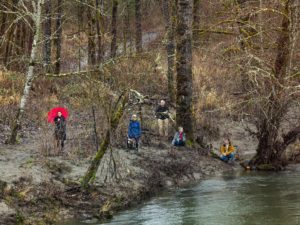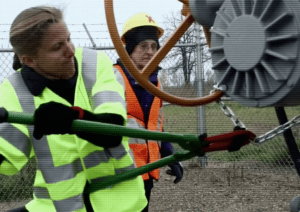Climate Defense Project
Berkeley, CA
November 20, 2017
On Friday, Climate Defense Project (CDP) filed a first-of-its kind brief in a Washington state climate necessity case, arguing that the government’s failure to protect the climate under the public trust doctrine justifies activists’ use of direct action. The brief argues that state and federal authorities are required under law to prevent damage to the climate system, and that individuals who try to enforce this duty are entitled to make their case at trial. Intervening as friends of the court, CDP is supporting the appeal of the Delta 5 protesters, who were convicted of criminal trespass after a 2014 blockade of coal and oil trains in northern Washington; the activists are seeking to overturn a 2016 decision that barred them from arguing that their actions were necessary.
The climate necessity defense has seen growing success across the country, with courts in Minnesota and Washington recently ruling that activists would be allowed to present it at trial. As in the Delta 5 case, however, judges have often barred juries from considering climate science and the government’s failure to regulate greenhouse gas emissions.
CDP’s brief makes the case for the climate necessity defense by drawing on another rapidly growing area of climate law: the public or atmospheric trust doctrine. The public trust doctrine has served as the basis for a major lawsuit against the federal government and several other state efforts. Linking the state’s duty to protect the climate to the need for direct action, CDP’s brief argues that “In cases such as this, the public trust doctrine offers a perspective on the fundamental rights that form the core of the citizen’s decision to engage in civil disobedience when survival resources are at stake.”
Washington attorneys Andrea Rodgers and Rachael Osborn assisted CDP with the brief. A decision from the Washington Court of Appeals is expected next year.
A copy of the brief is available here.





